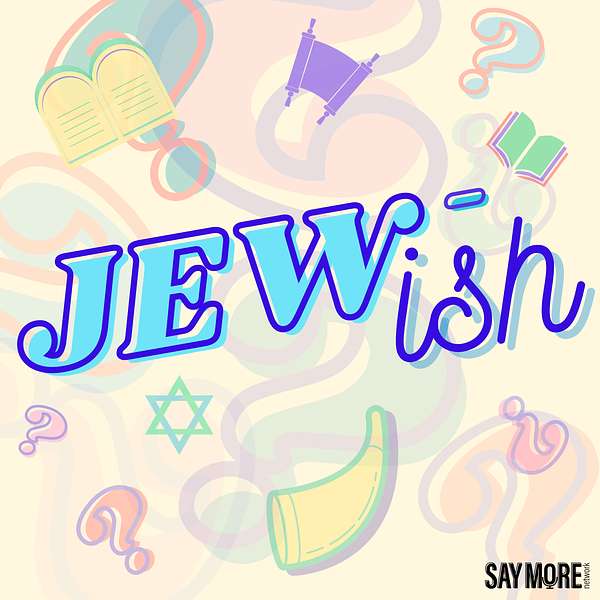
Jew-ish
What is being "Jewish"? What are Jews? What do Jews believe? What do Jews do? What's happening in those mysterious synagogues with all that weird language (it's Hebrew)?
Jew curious?
The thing about being Jewish is, you can't tell us apart by looking (well, not always), we often look the same, dress the same, work and play and eat right alongside our non-Jewish counterparts, and yet, as a teeny tiny minority--only 0.2% of the global population, and 2-3% of the U.S. population--plenty of people have probably never met a Jewish person, or if they did, they didn't even know it.
For as much as we share (and it's probably way more than you think), somehow, moving through the world as a Jew really is different. Everything looks different through a Jewish lens, even for those who aren't particularly religious, the ones who describe themselves as "Jew-ish."
But honestly, none of this is really that mysterious. And, if you're curious or confused, you can always just ask the internet--or, now you can also come here and check in with your new Jewish friend.
So, if you have questions about being Jewish, we're here to introduce, explain, ask alongside, and generally demystify Judaism for Members of the Tribe (Jews) and goyim (non-Jews) alike, exploring and showcasing the infinite ways there are to be Jewish.
Jew-ish
What Does Being Jewish Now Mean?
Ask a Jewish question, get a Jewish answer: It's complicated. It would be impossible to fully represent the richness and variety of Jewish experiences, but who better to try than a bunch of writers? So, author, publisher, and podcaster Zibby Owens took on the task in her anthology, "On Being Jewish Now" (see what I did there?); also a Substack where anyone can submit an essay. You may know Zibby from her long-running podcast, Totally Booked, (formerly Moms Don't Have Time to Read Books) which started in 2018 and has hosted more than 2100 authors since then. Zibby is a gifted interviewer, but she's also a fascinating guest!
GLOSSARY and More:
The global Jewish population is just under 16 million people, or about 0.19% of the global population. Nearly half reside in Israel, the Jewish ancestral homeland, from which they were expelled by the Romans in 70 CE after residing there for centuries, of which there is recorded history going back to at least 1200 BCE. The Jewish population of the U.S. is approximately 7.6 million, or about 2.4%.
Reform Judaism is a branch of modern Judaism that grew out of early-19th Century assimilationist sentiments in Germany, instituting various reforms including mixing genders in the synagogue, including music and using local language to lead services (as opposed to Hebrew).
Am Yisrael: meaning "people of Israel" appears frequently in the Torah in reference to the Jewish people. The text of the Torah is dated to 1000-1500 BCE. The earliest recorded reference to a state of “Israel” is from the Merneptah Stele, dating to about 1203 BCE.
The 5800 years reference: The Hebrew Calendar year is counted from the traditional biblical date of creation, currently 5785, similar to how Christian custom counts from the traditional date of Jesus' birth. To learn about the archaeological evidence of “Who Were the Early Isr
Trying to get those last few dollars out the door for your 2025 charitable donations? Or maybe you just have a little extra this season, when so many don't have enough? There but for the grace of God go all of us, amirite? Well, if this is you, please consider giving to the Hebrew Free Loan Association of Greater Washington so they can continue making interest-free loans to community members in a bind--like myself. And thank you!
THIS IS AN AI GENERATED TRANSCRIPT. THE ROBOTS ARE HELPFUL BUT THEY'RE NOT PERFECT, PLEASE BE FORGIVING!
Zibby: [00:00:00] I was actually just before this, looking at the email prompt that I had sent out to about 200 people and 75 people said yes.
Hannah: Ooh, can you tell me the email prompt?
Zibby: It said, write about what it means and how it feels to be Jewish. Now, write a story. Only you can tell as if you're talking to a close friend over coffee.
This is not supposed to be political. It is not supposed to be an op-ed article. This is the feelings behind the headline.
Hannah: Meet Zibby Owens. Author, publisher, award-winning podcaster. Mom, is there anything she can't do? Zibby's been hosting, totally booked with Zibby since 2018, formerly known as moms. Don't have time to read books.
Interviewing authors. Every single day, and I mean every single day. She did seven days a week starting in 2020 and I guess after four years she figured out she's but a mere mortal and, uh, went down to five days a week. So yeah. Anyway, now it's Zibby's Turn. She started her own publishing house and bookstore has sold and published six books of her [00:01:00] own with different publishers, has led events and retreats and launched the on being Jewish now platform based on her latest book of the same name.
So naturally I had to have Zibby come on and talk about what it means to be Jewish. Now, make sure you check the show notes for the Substack link so you can submit an essay on your own Jewish experience on being Jewish now. And as always, for lots of additional info and some potentially unfamiliar terms or concepts, and of course where to find Zibby and all of her books.
Zibby: What is being Jewish for you right now? Being Jewish means standing up, speaking out, uniting and demonstrating. Jewish values.
Hannah: And I'm curious, when you say Jewish values, what, what would you des, what would you say are some Jewish values? Like how would you define that?
Zibby:[00:02:00] Education, kindness, giving back, tzedakah, tikkun olam.
Valuing how we treat other people. The good we do in the world, the way. We treat our families and our friends love of food. I don't know.
Hannah: Amen. Amen to all of those, but especially that last one, I'm loving. It's such a funny way to open the conversation, but especially with you because yeah, that's just a big theme and I think most of our lives is like we're raised to use our voices.
And especially in the defense of others and in the defense of values, is it basically that question that inspired you to do on being Jewish now? I mean, 'cause like what a labor of love.
Zibby: Well, after October 7th, I spent a lot of time and still do posting, writing, substack, talking, trying to help, trying to use whatever my platform.
Was and is to [00:03:00] let people know, I'm routinely surprised that people don't hear about these things. I shouldn't be surprised at this point, but mainstream media does not cover a lot of the things that are happening, and I actually, for some people, am their gateway to what's happening to the Jewish people.
Not that I in any way am a news. Outlet, right? I just post occasionally about things. I'm not, and there are some wonderful people like Samantha Tis, who have turned their platforms over to Jewish News, the Israeli news and all of that. But I feel my role has been to share the good, the bad, all of it. And yet.
After doing all of that and trying to make a difference and participating in this artist against antisemitism, which I helped start up and just like doing whatever I could, I just felt so discouraged, like it was not making a difference, like nothing was making a difference. I. One betrayal after the next, another author, another artist, another person.
So I thought to do an [00:04:00] anthology, given that my one voice will never be enough, what if we got a lot of voices together? Then it would be a lot harder to ignore. Maybe it could make an impact. And so I gathered a bunch of my author friends and their friends and went out to about 200 people and 75 people said yes.
And it was, I was actually just before this, looking at the. Email prompt that I had sent out to everybody and like, yeah, that's pretty much what I meant, like, and that's what happened.
Hannah: Ooh. Can you tell me the email prompt?
Zibby: It said, write about what it means and how it feels to be Jewish. Now write a story.
Only you can tell as if you're talking to a close friend over coffee. This is not supposed to be political. It is not supposed to be an op-ed article. This is the feelings behind the headlines.
Hannah: That's. Beautiful and perfect and I mean, I think that's, you know, to be honest, so much of what inspired me to start this podcast, I would often hear, oh, I've never met a Jewish person.
And I'm like, how do you know? I don't know if you, did you ask? What's been interesting too, to see since [00:05:00] October 7th is I. It's, I've seen a, I wouldn't say a divide, but I would say that I've seen people sort of shake out in one of two camps in terms of how they relate to their Jewishness. One is like, I'm Jewish and I'm not the one bombing Palestine.
I'm Jewish and I believe they deserve to exist, and you don't have the right to tell me how I think about things. And the fact that you're making that assumption is actually antisemitism. Or just, I'm proud to be Jewish and I don't think I should have to be ashamed because you don't understand our story.
And then there's the other side, which is like. People sort of shrinking away from it a little bit, being a little quieter about it. Maybe they do feel actually ashamed because of what's happening, and I don't really know how to bridge that gap other than just by talking about our lived experiences and how living in the world as a Jewish person, especially in the us it's a specific community, and each Jewish community [00:06:00] in the US is a specific community, but especially being an American Jew, there's.
Just a way of moving through the world that I think changes everything. Everything looks different through a Jewish lens, and it's hard to describe, but it's so distinct and we're such a tiny minority that really it was that feeling before all this, it was more, it was the Kanye and Kyrie stuff that made me be like, I'm just, it's just not that complicated guys.
Like it's just not that complicated. You can just ask you. In fact, you can come, but you know what? A lot of people don't have a Jewish friend, so I'll be your Jewish friend. It's okay. You can come ask your stupid questions. I'd rather you be curious. All good. And so it was kind of that same feeling of like, also, there's no really wrong way to be Jewish.
If you're Jewish, fine. A lot of us call ourselves that. And so it was kind of that same feeling of like, I think as you do, it's the values and the commitment to humanity that. Really defines [00:07:00] us and the way that we execute those things, I find just, it's the lens, it's the asking questions, including of ourselves, am I living in accordance with my values?
Am I helping to fix the world around me that I can touch? Mm-hmm. Am I using my job to fix the whole world as an excuse not to fix the things I can? All these things that like. Are ingrained in us from childhood. Even if you were raised a secular Jewish person, it's just completely different.
Zibby: Wait, go back to what you were just saying.
Am I using my job to like avoid basically doing the work? What do you mean?
Hannah: So, specifically the concept of Tikun Olam, I had a wonderful conversation with a rabbi, a link to the epi, a link to the episodes in one of the previous episodes about how should we approach it, right? Because this big concept of it is our responsibility to repair the world.
Mm-hmm. And that is an unwinnable. War in the grand scheme, right? Mm-hmm. Like I, Hannah cannot personally repair the world, and yet I am responsible for doing everything I can. [00:08:00] And I think especially in times like these in so many different ways, the idea of all the things that do need repair is so overwhelming that it's like, am I using, am I using the idea that I'm supposed to fix everything as an excuse, not to fix the things that are right in front of me, that I actually can,
Zibby: mm-hmm.
Hannah: And in fact, that I'm responsible for, actually, what I am responsible for is treating the people I come into contact with, with dignity.
Zibby: Mm-hmm.
Hannah: And being an authentic version of myself. Mm-hmm. And repairing the relationships that I can of my own. And once you've cleaned up your entire house, then you can go clean the neighbor's house.
But like, it starts with what you can touch and. I feel like, you know, that level of self-inquiry, that idea of, of like, am I being the thing? Yeah. Am I being the thing I know I can be? Mm-hmm. That to me feels very Jewish.
Zibby: And do you feel that you fall into that trap sometimes? Oh, constantly. All the time.[00:09:00]
What are you not doing that you wish you were doing? In your own
Hannah: sphere? To be quite honest with you, I mean, I definitely think we probably all do, but I certainly have personal relationships that I just wish I felt better about. My dad is a great example. Like I wish we had a better relationship, but I'm not actually responsible for his part of it.
And you know, so at some point I have to make a decision to be safe, to protect myself and. Then all I can do is be responsible for not hating him or being angry about it or blaming him. It's just let it go. Leave it alone, but do what makes you feel safe. And then asking myself constantly, you know, but am I punishing someone for his mental illness?
Am I living in accordance with my values? What are the things that I'm trying to balance? And sometimes even on that small of a scale, it just becomes so overwhelming that you feel like you have to back away. But then it's like when I saw him in that deteriorated [00:10:00] state, I'm like. He can't like he can't be, this is he.
He's not choosing this. Mm-hmm. He didn't try, he didn't make this happen. Yeah. He was born this way. Mm-hmm. Could he have really made any different choices?
Zibby: Mm-hmm.
Hannah: And so it's like that, you know, boy, the guilt that must be so hard on you though. It's hard on my whole family, you know? Um, but it is, I, I, I think actually that leaning on these questions and exploring these hard questions like this actually helps.
Mm-hmm. Because you have to do that exploration of like, am I being fair? Am I being the kind of person that I want to be? Mm-hmm. I definitely think, for example, it's like, oh, my volunteerism, I wish I could do more, but you know, I just, Ugh, I'm so tired and I'm so busy and I'm so blah, blah, blah. That's sort of the more universal version of it.
But I think that even that starts with that basic question of, am I living in accordance with my values? And if you don't know the answer to that, maybe we take it back a step and ask, what are my values? [00:11:00] And you know, I don't know. I wasn't raised Christian, so I can't speak to whether or not others are raised in the same way, but based on the conversations I've had with my.
You know, non-Jewish friends, which is the majority of my friends. 'cause it's a numbers game, right? They don't think about it the same way and they certainly don't talk about it the same way. And that's probably one of my favorite things about being Jewish is, oh my God, we yak, yak. Like nothing is off limits.
And I think it's great. It's beautiful. I love that. I. I agree.
Zibby: And you know what? When I answer that question, I think I'm gonna change it from now on and say the essential questioning. 'cause it's a hundred percent true. It's just I didn't even think to articulate it
Hannah: Totally.
Zibby: That's why there's always so much debate, which ultimately I think is kind of our downfall in a way can be.
It makes us, the questioning can make us who we are. But when we are attacked and asked to retaliate and all of us have very different views and like to debate them, I feel like. Sometimes our, you know, our pr, our branding of ourselves is a little bit [00:12:00] murky when we have different opinions and that can make us a little bit more vulnerable to attack.
That's my 2 cents.
Hannah: Yeah. Well, and it can tear us apart, which is Yes. Historically dangerous, especially for minority populations that to, it's not great to be at each other's throats. That's right. That's right.
So tell me about how you grew up. Big question. Did Judaism show up in your life? How. It did
Zibby: show up in my life. I grew up reform. We were not particularly religious, but we went to, I went to Hebrew school every week. I went bat mitzvah, reformed. You know, we did not observe Shabbat growing up, but I started to, as a grownup, I fasted myself.
My family doesn't fast any of Kippur. I mean, I'm a little more observant, I would say, or I became so as a grownup and. It was part of, but it was very much a part of who we were. Like my mother is very strongly culturally Jewish. Mm-hmm. And believes in it very much. My father was more, you know, more religious, less [00:13:00] culturally.
So I would say actually, but anyway, it was a part of who I was. It always was, but I grew up it, I went to an all girls school and there were only three Jewish girls in the class. And so there was always this like difference. So that. If I was ever like, excluded from something, my mother would say something like, it's because you're Jewish.
Oh my God. I'm
Hannah: like, no, it's not. Whatcha talking
Zibby: about Sometimes
Hannah: people
Zibby: just don't like you. Yeah. You know, which also sucks, but it's, maybe it was like annoying them or something. Who knows? I don't know what it was. But anyway, uh, yeah, that was just sort of a, it was very much a part of our house and I have my Jewish grandmothers who were talking, you know, going to curves until the day they died and you know, it's just a part of, of, of everything.
My grandfather, my. My grandmother's husband, second husband from before I was even born was a rabbi, and so there was that. So it was just a part of my family.
Hannah: I, I mean, it's such a beautiful, like familiar story, but like it's cozy, you know? It's like we were, you know, we were probably a little more observant than some reform, which I've learned through doing this show.
I'm like, oh, I didn't really think [00:14:00] I was that Jewish, but I'm more Jewish than a lot of people who I would very much call Jewish, so, okay. I don't
Zibby: know. I mean, I think that's the other thing about Jewish people, like there is the religion and then there is. The race and culture and sometimes when we're asked, tell me about your Jewish upbringing.
We mean, tell me about like how observant you were of the religious customs, but that's a different question, I guess from. Sort of how Jewish did you feel? Totally.
Hannah: That's such an interesting question. Did you, so in the, in the collecting of, on being Jewish now, did you learn some like totally new relationships to like be feeling Jewish that you hadn't really thought of before?
Zibby: Just that there's such a huge range and that it evolved so much over time and that there was even a sense for some people. That ended up, no, like there's one essay by Nicola Cross, for instance, and she didn't find out she was Jewish until she was a teenager. 'cause her family had escaped and they didn't, and [00:15:00] they assimilated and they didn't want to talk about it.
And she was like, wait a minute. She's like, my family fled. Are we Jews? Why did we flee? Wait, why? What? Were wait minute, flee from. I because of the range of opinions and the range of experiences all over the world. 'cause there were contributors from Australia and Israel and who had lived all over the place.
There were some things that united, and yet your experience can look very different like your life, obviously, which sounds, I guess. Quite simplistic, but, but it's true that people assumed Jews look and feel and act a certain way, and that's not true. It's an incredibly diverse population, and I learned a lot more about Israel and like from Leila.
Learning more about what it feels like to be an Israeli mom and the effect of the IDF and military service in Israel. So I learned so much from the collection. I really did.
Hannah: It sounds [00:16:00] incredible, and I can't wait to read it and I will link it in the show notes. I'm so glad you brought up moms because I have to say that I.
Love so much that you made a podcast for moms who don't have time to read. I'm very curious though, talk to me a little bit about the evolution of your podcast. Were you a mom who didn't have time to read when you originally started it? 'cause that was the original name, right?
Zibby: Yes. The original name was Moms Don't Have Time to Read books.
I started it. Seven years ago when my littlest guy was three. So at the time I had a 3-year-old, a 4-year-old and 2, 2 10 year olds. And now, well, no, they must have been, well anyway, something like that because my twins are now 17, about to be 18, and I have an 11-year-old and a 10-year-old, which is a totally different ball game, right.
They, I am not. Like the stressed out my back hurts from carrying kids. I have spit up on me type of mom at all. I'm more of the like the emotional warrior of like, you know, what is the correct psychological response in every situation to every [00:17:00] stimulation there could be. Oh my gosh. So, so I didn't feel like it was as apt a description.
Not that I have so much time now, but it's not because. I'm nursing or anything like that.
Hannah: Yeah. Yeah. So it grew right along with you and your kids. Mm-hmm.
Zibby: Plus, I don't talk about parenting. It's not about parenting, it never was. It was just about books. But it was funny 'cause I was trying to immediately show people I related because I was in the same boat, because I wished I had more time to read because I had stacks of books on my bedside table.
And you know, even though I would like prop up a book as I was nursing the middle of the night just to get a few pages in, like, yeah, it wasn't what I wanted. And I was always recommending books to friends and articles to friends. I was like, that person always, what should I read on vacation? So I thought, well, I'll just do it this way.
Hannah: Ugh. I love it. What a great way to also give yourself some structure and be like, force yourself to be like, okay, we're gonna do some books, we're gonna talk about some books, we're gonna look at some books. Oh,
Zibby: it's amazing. I never would have read all these books or not that I can read every single one start to finish slowly and [00:18:00] leisurely.
Like that is not how I read when I prep for a podcast. You know, I wish I could, but I have like 10 this week, so you know, but I still am in all the books and reading it and getting to know authors every day, and. Figuring out what their stories are and being constantly inspired. It's like the best free education I could have possibly dreamed up for myself.
Hannah: That is so awesome. And what I wanna know desperately is like, how do you have so much access to all these authors? How do you have access to authors to where you can interview one a day for like years? That's banana. S
Zibby: and at the beginning, if you had told me that, I would've been like, yeah, right. In fact, somebody did tell me that at the beginning and I was like, yeah, right.
My friend Lee Carpenter was my first guest and we sat right here and I interviewed her and I was like. Oh my gosh. I love interviewing so much. I had interviewed for in a journalistic capacity, like interview and then go write, but just to talk and put the episode up. I was like, oh, this is like a dream come true.
And as she was walking out that first day, she's like, watch, you are going to have piles of books at this front door [00:19:00] in no time. And I was like, no, I'm not. Like I was begging people to for interviews. I was like DMing people. And actually I had just gotten on Instagram, so I was like. Facebook emailing, and I don't even know, just like begging friends of friends to come on.
And then I remember the first publicist who like started pitching me regularly and I was like, thank you. And she still, I have like a sweet spot for her. Amazing. And then it just sort of grew and then as the profile grew of the show and me and whatever, more people started pitching and now. It's grown so that yes, I get email pitches, but that I can reach out occasionally and just, and also as a bookstore owner, I can go through and see what books are coming out and who I might want, and I already have publicist relationships so I can reach out.
Hannah: Oh my gosh, that's so awesome. The podcast in the. Bookstore and the connections to publishers, it's all kind of intertwined, right? Mm-hmm. So, yes. How did you think about leveraging all of that in terms of entrepreneurship, to get yourself into a place where you could like define the shape of your own life after the [00:20:00] things that you're passionate about, if that's what you've managed to do?
Zibby: It's started really slowly and it grew slowly, and I test things constantly and I have a great team and. I am not afraid to try because especially things that don't have a huge risk behind them. Like it's not like I didn't, I couldn't just test out Having a publishing company, that's a big undertaking with the multi-year process and whatever, but everything else, like I can test out and see, do I like it?
Do, is it working? Is this what people need? Is this what people want? Why not? What's happening? And I love learning like that. And then being able to grow by continually trying to improve. Yeah, and taking feedback. I mean, you can't just like stay stationary. Yeah, totally. So
Hannah: do you feel like being an author and creator in general with a strong Jewish identity has made it [00:21:00] difficult? Or how, what is the impact that's had on you in the publishing space?
Zibby: Um. My Jewish identity came into play more when I started posting right after October 7th, which I just assumed everybody else would.
I mean, that wasn't my first time posting about being Jewish. I had posted plenty. I used to write for Cavalla all the time, like I was like a 36 under th I, I don't know, like I've been a part of this community for a long time. So I didn't think it would cause me to lose followers right away, and I didn't.
I wasn't prepared like most people for the onslaught of hate that followed those attacks anyway, I felt compelled to double down through professionally, and there has been a lot of. Churn. I would say in the beginning, especially people who did not like that I was in support of Israel. Mm-hmm. And I personally feel like if you are Jewish, you might not like everything that they are doing in Israel, but like if you should.
Support their right to exist. And so by supporting Israel when they're attacked, I [00:22:00] feel that is a way to support his existence. Mm-hmm. It's not to say I believe in every single policy, and obviously I don't want anybody being killed on any side, ever. I mean, I have, I'm like an empath. I, you know, cried everything.
But, um, anyway. Many people unfollowed me. Many people wrote mean comments. Many people I knew, many authors I had previously supported and really helped with their book launches were posting all these terrible things and it broke my heart. Mm-hmm. There was one in particular, and I DMed her after just to say, gosh, like this, I just want you to know.
This really hurts. As a Jewish woman, this really hurts what you're posting. I, I like sat on the floor of my closet and just cried. 'cause I was like, how so? And I know it's not totally personal, but it so is,
Hannah: well it's not personal for them, but it's personal for us.
Zibby: It's like when Harry met Sally. Isn't that what she said?
Isn't that, it's not that he didn't wanna, he didn't wanna get married, it's that he didn't wanna marry me. [00:23:00] Yeah, right. It's like the same thing, you know, like Totally. You can say, I just don't, I just don't wanna be friends with Jewish people, but like, that's me. Yeah. So anyway, there's been review bombing of my books.
I took a very public stance about these, this awards, these awards that were being given out and when they at the National Book Awards and basically I took a very, what became a very public stand against. A behavior I found unfair and discriminatory, which led me to develop a lot more Jewish followers.
Not necessarily on social, but just Jewish advocates, I would say in various communities who would reach out to me, but more hate across the board. I've had bookstores blatantly say that they won't sell the books I publish. Even though the authors are not Jewish,
Hannah: that is some next level. Right. That's deep.
That's like we're willing to harm others. Yes. Just because you are Jewish. Yeah.
Zibby: And none of this is fair. None of this is balanced. None of [00:24:00] this makes a whole lot of sense. But um, it is what it is right now and it's gonna change. Yeah. I believe I have a lot of hope. I really do. I don't know why, but I do. I believe.
Fundamentally the people who are good. Mm-hmm. To quote Anne Frank or whatever, but, uh, I really do, and we'll see what happens. But have I been crushed and hurt and to have people tried to hurt me professionally as a result? Yes, they have. They absolutely have.
Hannah: Yeah. That disappointment is something that I think a lot of us are struggling with in terms of just jadedness of like, we're never gonna have a conversation where you express.
Sympathy or horror on behalf of the people in Gaza that I'm gonna be like never. There's never gonna be a time that they don't deserve empathy and protection and clean water. It doesn't mean that I'm obligated to therefore. Believe that Jews don't have a right to return to their [00:25:00] homeland. And I think like that's the part that just gets so lost and it's selective education or lack of education or whatever.
But you know, we are rael, this is not a new claim. It's not a new conversation. So I just, one of the things I said to a professor of mine, I have a Middle Eastern, north African Studies master's degree was, and you know, we had a healthy debate, I would say, but I think that like who's. Belongs anywhere in any conversation.
Depends on when you start drawing your line. Mm-hmm. If you start it in 1948, the answer is different than if you start it in, you know, 1846, which is different than if you start it, oh, I don't know, about 5,800 years ago. Mm-hmm. You know? So, I don't know. It's all just, I do think that it's that disappointment.
It's discovering how people like quote unquote, really feel that you're just like, mm-hmm. We gotta do better guys and we can. And I think that how we get there is conversations like this. How we get there is like, come [00:26:00] talk to your Jewish friend and I'll tell you my complicated feelings. And then maybe your feelings will become more complicated and you can hold onto some more of your own humanity.
Mm-hmm. So what do you do or hear or see or talk about that restores your faith in humanity that you're most excited about?
Zibby: I. I feel that there are a lot more people than we think who don't oppose anything about Judaism or Jews. They just don't know. And when they find out more, they develop respect and a sense of solidarity.
And I think that trying to change the minds of all the haters is not the best course of action, but it is. Taking all the people who might just not care and making them care. And that feels more realistic. And I have seen as I've done that with individuals, how powerful it can be. If they come to an event and they hear about it and they read a few essays from the book or whatever, [00:27:00] their minds get changed.
They start to care because people learn through storytelling. Mm-hmm. And we have to. Tell our stories so that people understand, empathize, and connect. And when that happens, I really do see real change. And so that gives me a lot of hope.
Hannah: Could not agree more. Thanks for listening to Jew ish. If you like what you hear, please give us a follow and don't forget to tell a friend who might be a little Jew curious.
It really is the best way to help people find us. Also, make sure you check out the show notes for a glossary of terms you might have heard in this week's episode. Jew is a say more production.
Podcasts we love
Check out these other fine podcasts recommended by us, not an algorithm.
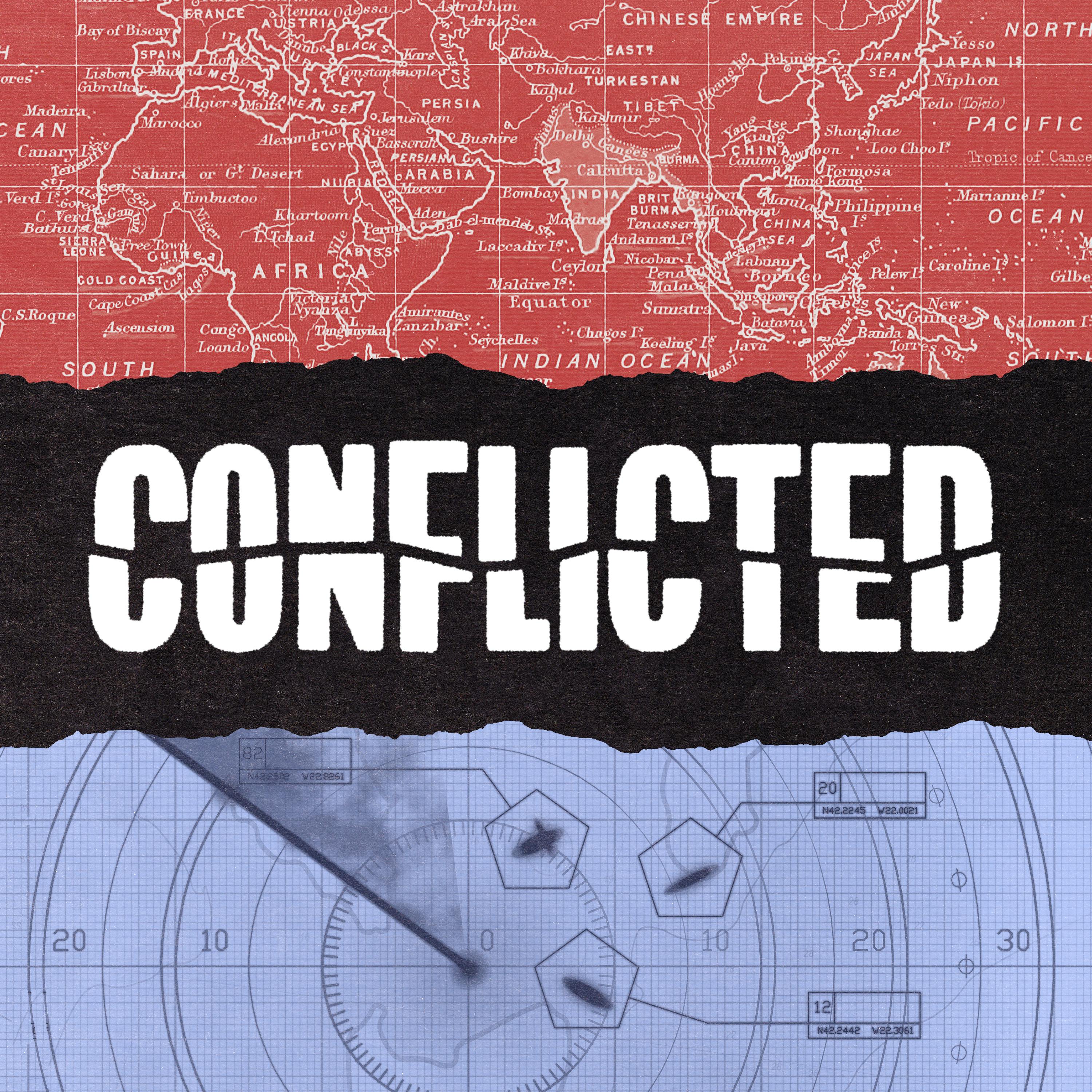
CONFLICTED
Message Heard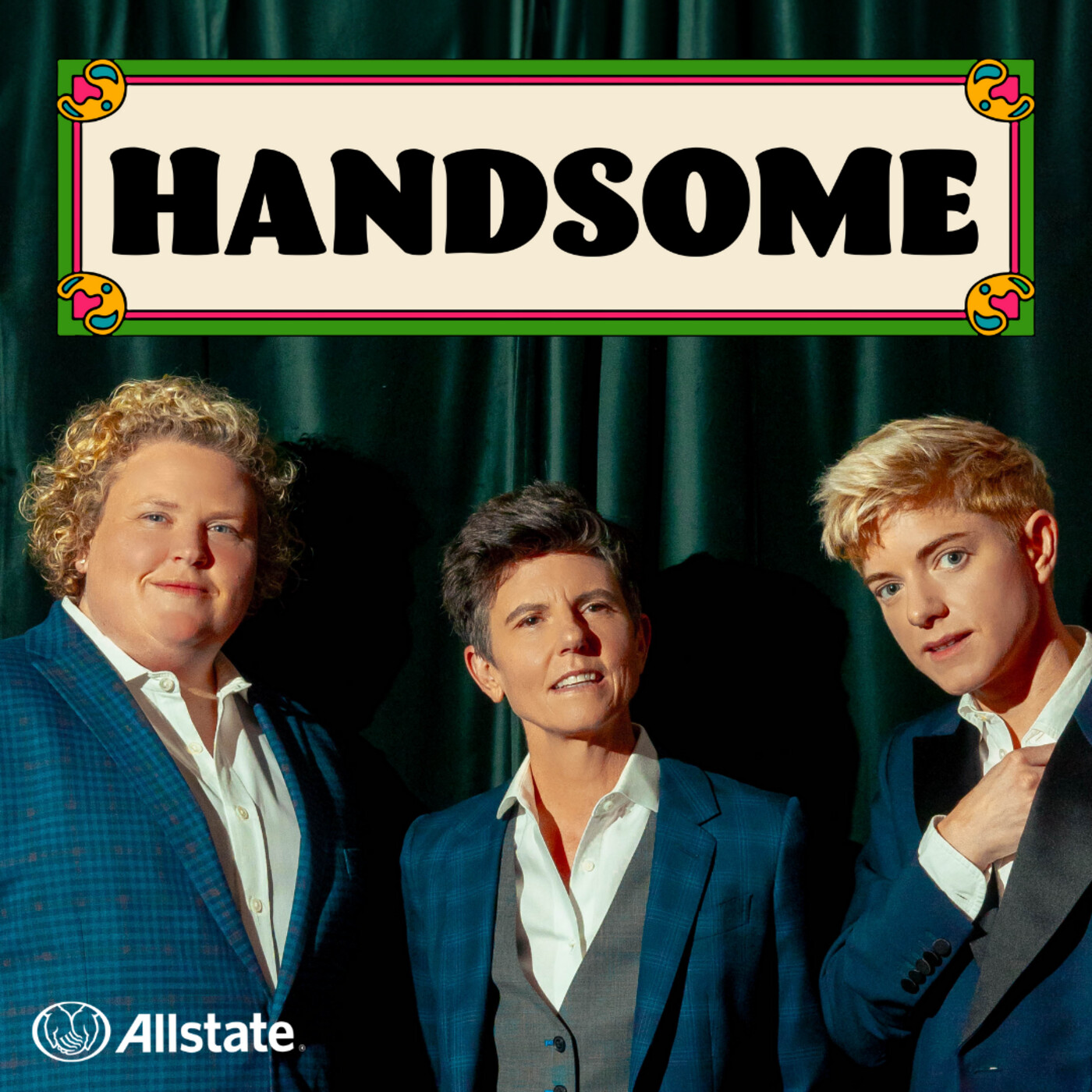
Handsome
Headgum
The Daily Stoic
Daily Stoic | Backyard Ventures
If Books Could Kill
Michael Hobbes & Peter Shamshiri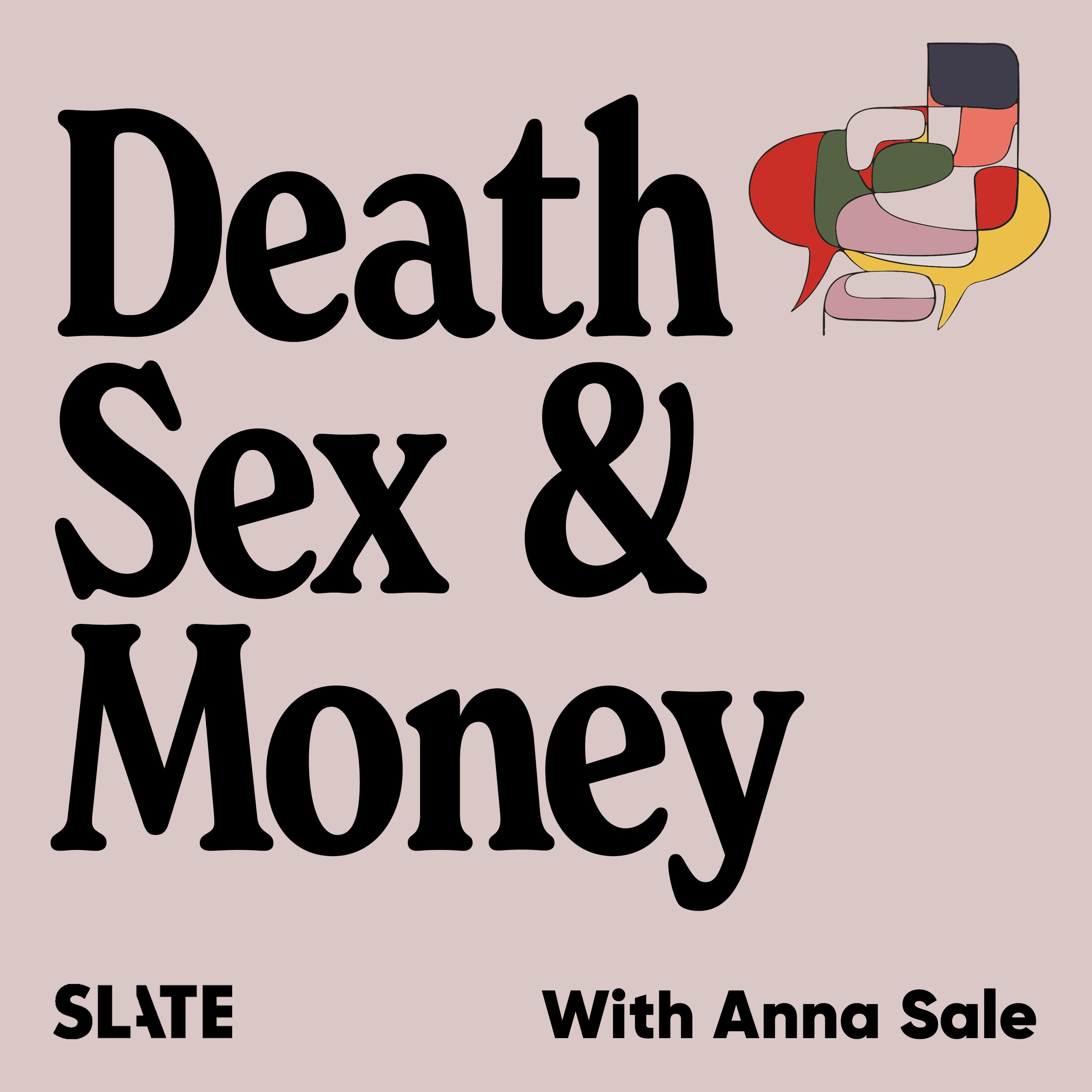
Death, Sex & Money
Slate Podcasts
Wiser Than Me with Julia Louis-Dreyfus
Lemonada Media
Maintenance Phase
Aubrey Gordon & Michael Hobbes
Serial
Serial Productions & The New York Times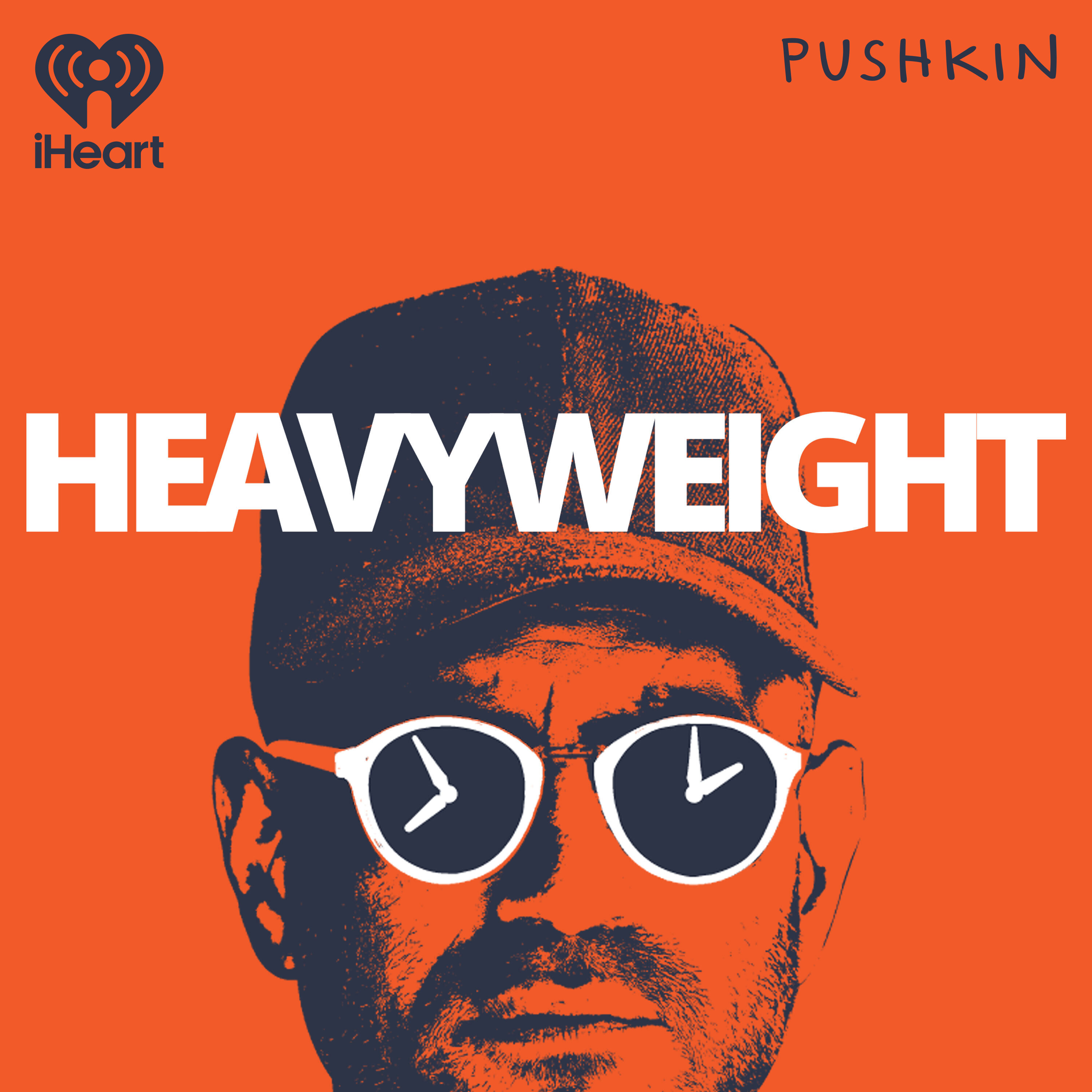
Heavyweight
Pushkin Industries
Stoic Coffee Break
Erick Cloward
Radiolab
WNYC Studios
Throughline
NPR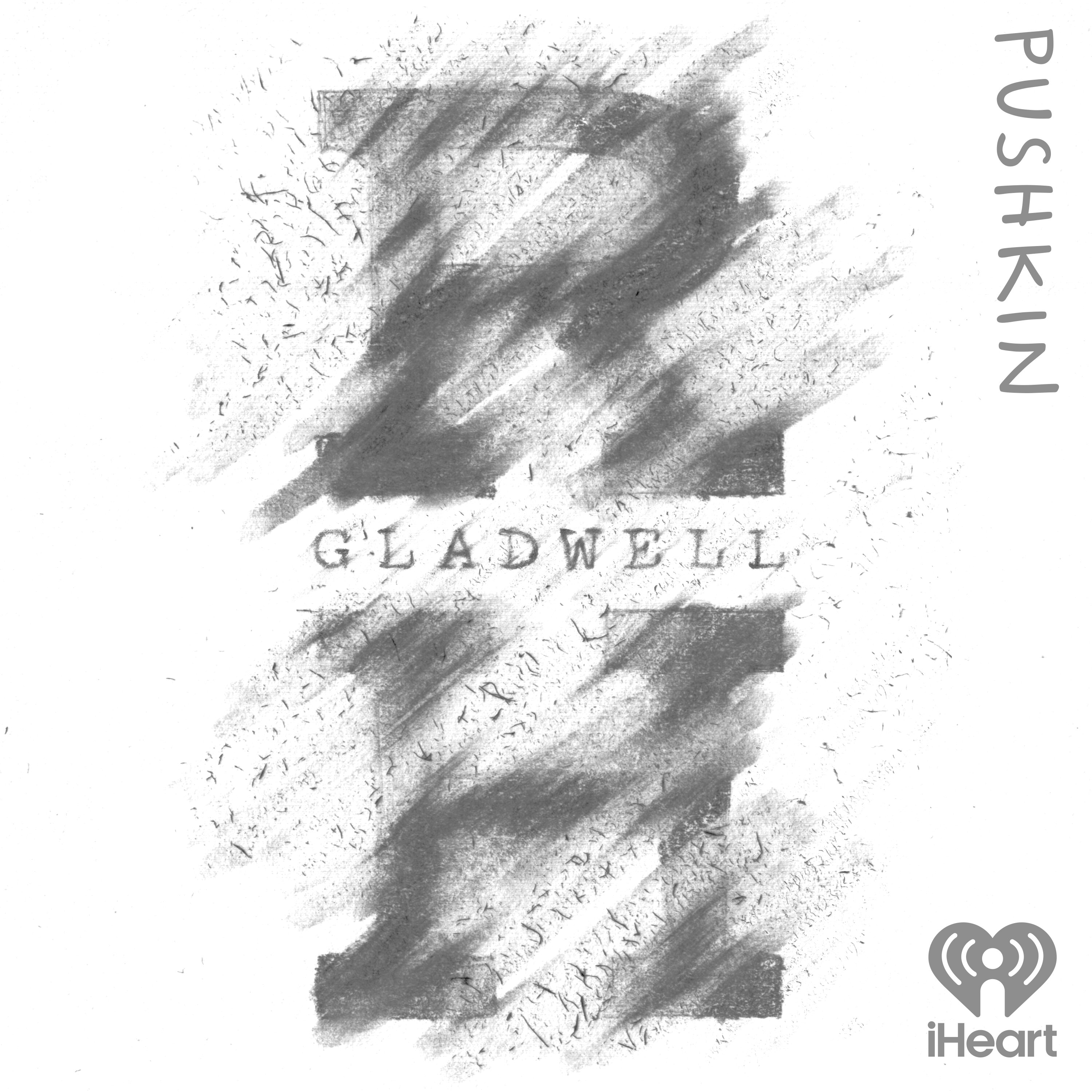
Revisionist History
Pushkin Industries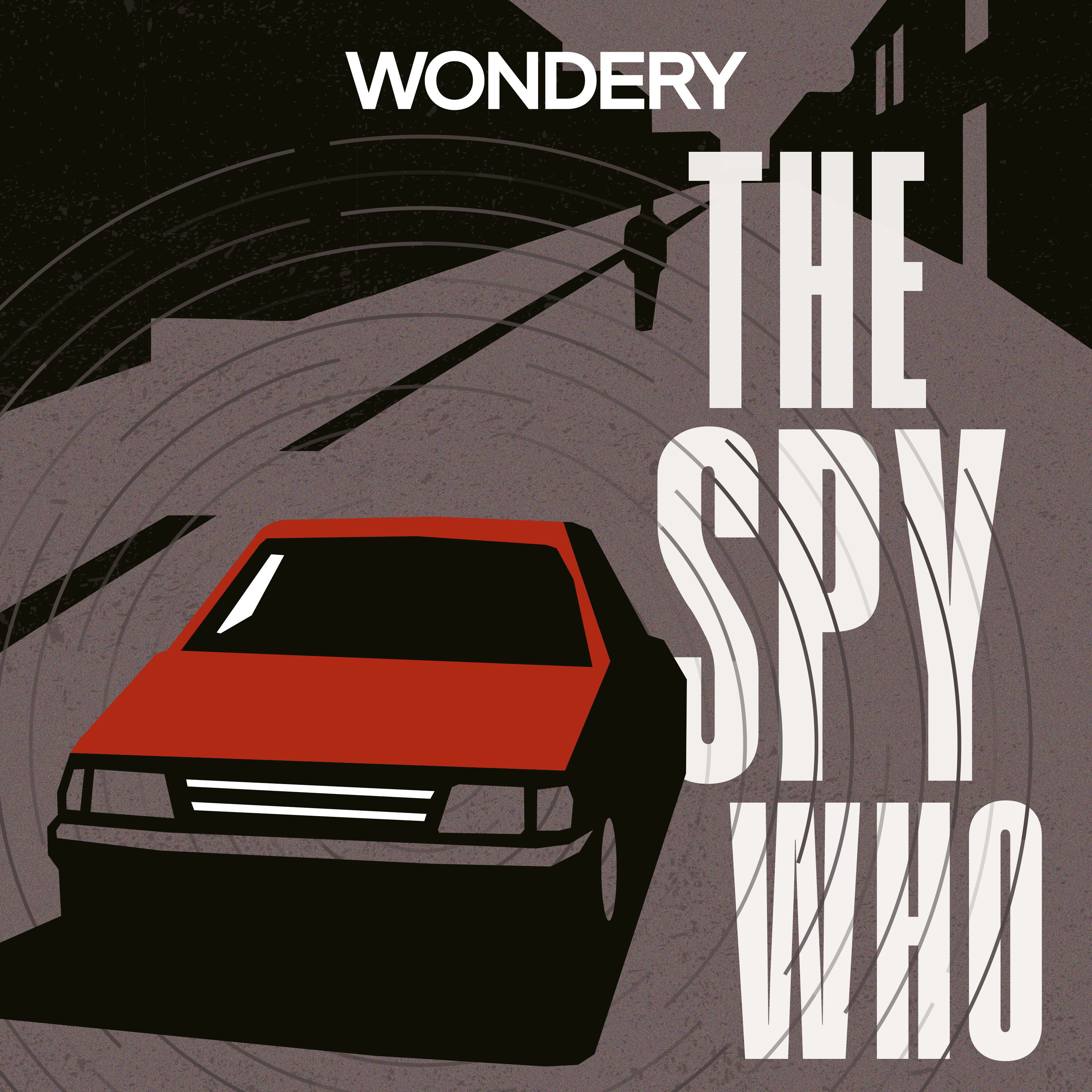
The Spy Who
Wondery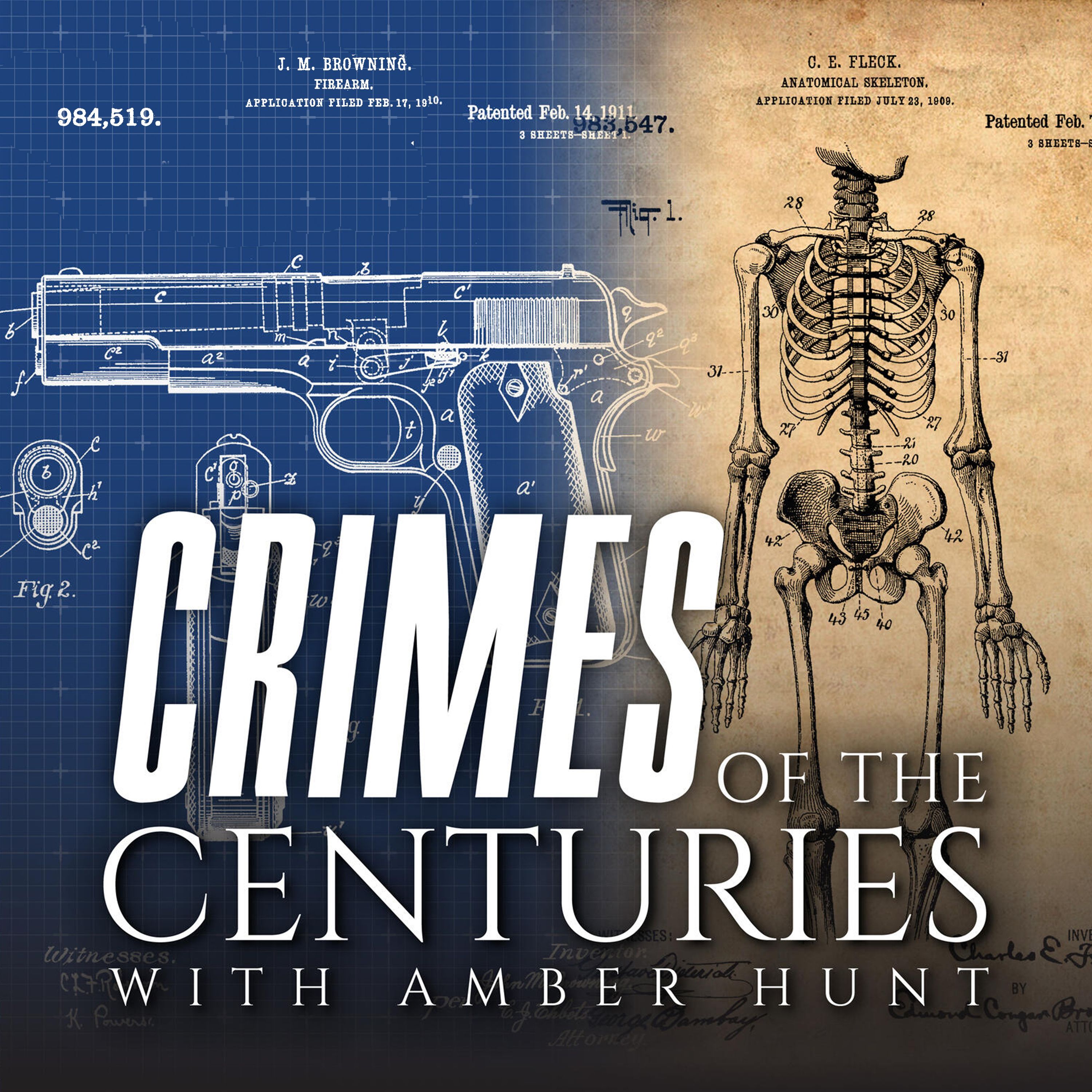
Crimes of the Centuries
Amber Hunt and Audioboom
Freakonomics Radio
Freakonomics Radio + Stitcher
DISGRACELAND
Double Elvis Productions
Amicus With Dahlia Lithwick | Law, justice, and the courts
Slate Podcasts
Decoder Ring
Slate Podcasts
Hidden Brain
Hidden Brain, Shankar Vedantam
Embedded
NPR
Where Should We Begin? with Esther Perel
Esther Perel Global Media

